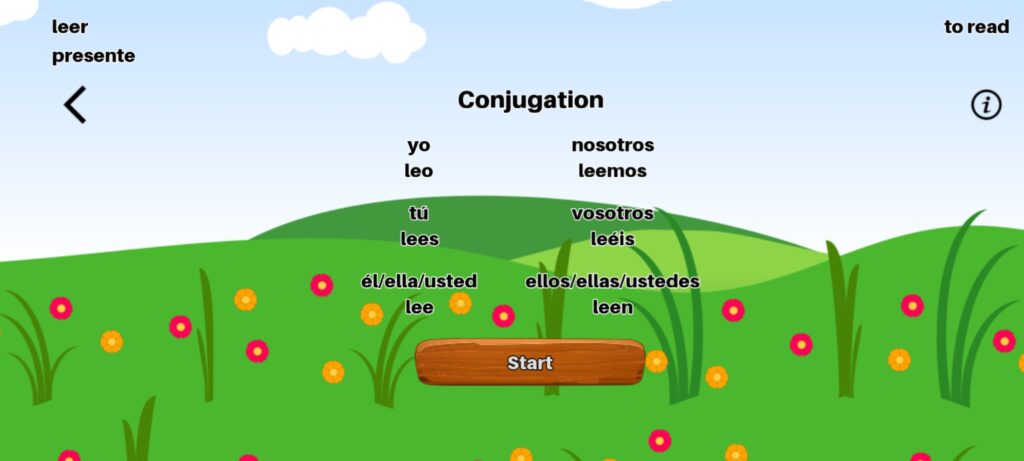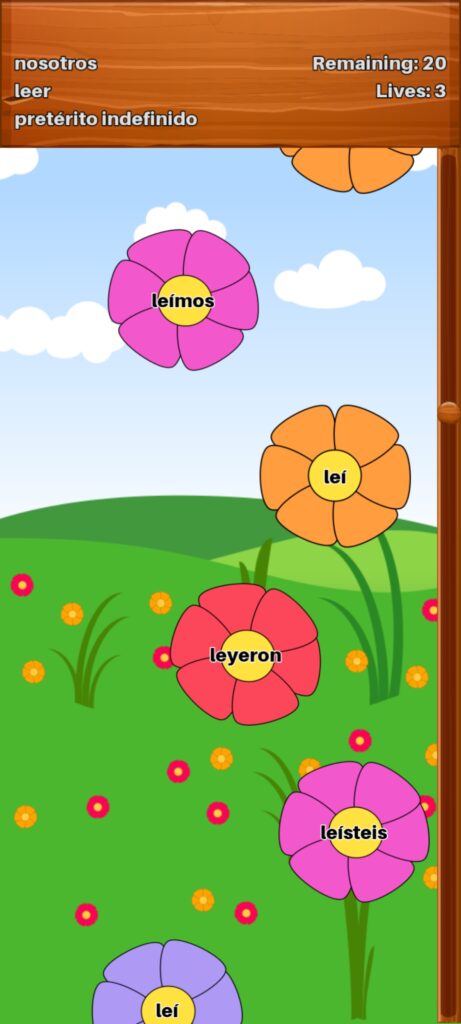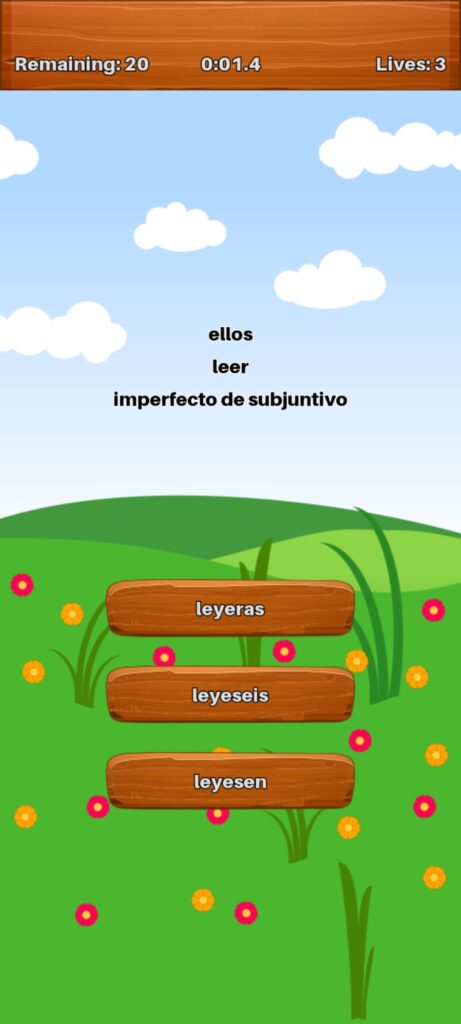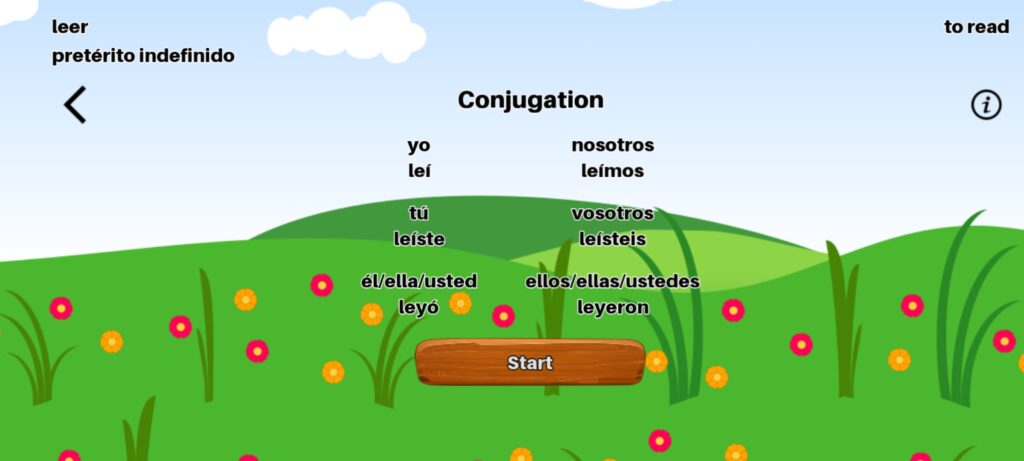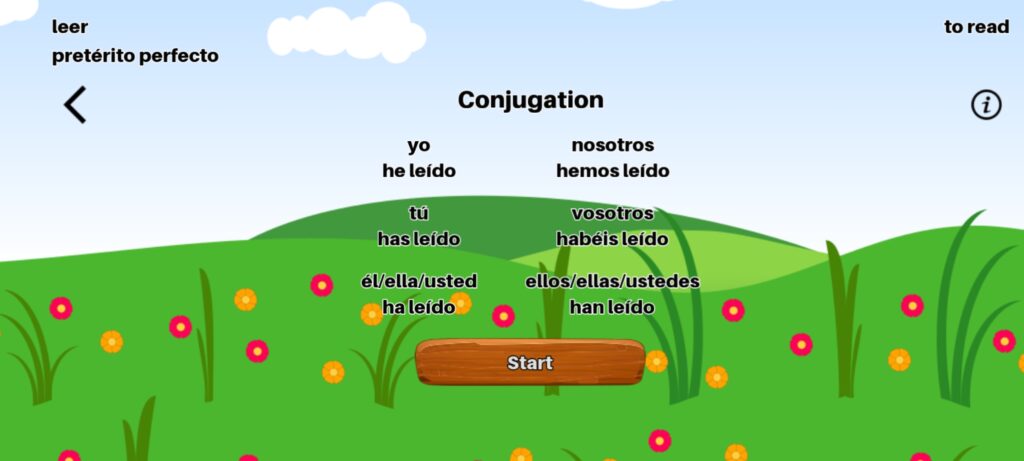Today’s verb of the day: leer
Translation: to read
“Leer” is beautifully irregular and exhibits 3 exceptions to the standard conjugation pattern:
1. The participle is “leído” therefore, composite times conjugate as follows
Example: perfect past / pretérito perfecto
yo he leído
tú has leído
él, ella, usted ha leído
nosotros, nosotras hemos leído
vosotros, vosotras habéis leído
ellos, ellas, ustedes han leído
2. Simple past tenses conjugate with a “y” in the 3rd person
yo leí
tú leíste
él, ella, usted leyó
nosotros, nosotras leímos
vosotros, vosotras leísteis
ellos, ellas, ustedes leyeron
3. Based on the 3rd person simple past, the imperfect subjunctive is “leyera”
leyera o leyese
leyeras o leyeses
leyera o leyese
leyéramos o leyésemos
leyerais o leyeseis
leyeran o leyesen
leyeras o leyeses
Want to conjugate correctly every time? 🙂
Practice this regular verb with our Spanish Verb Conjugation game on the Google Play Store!
